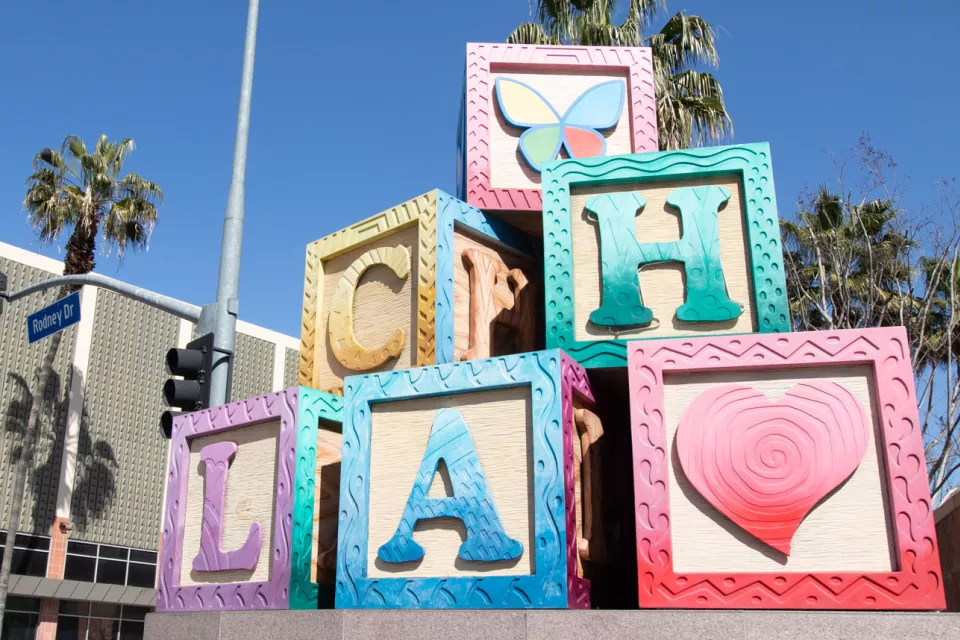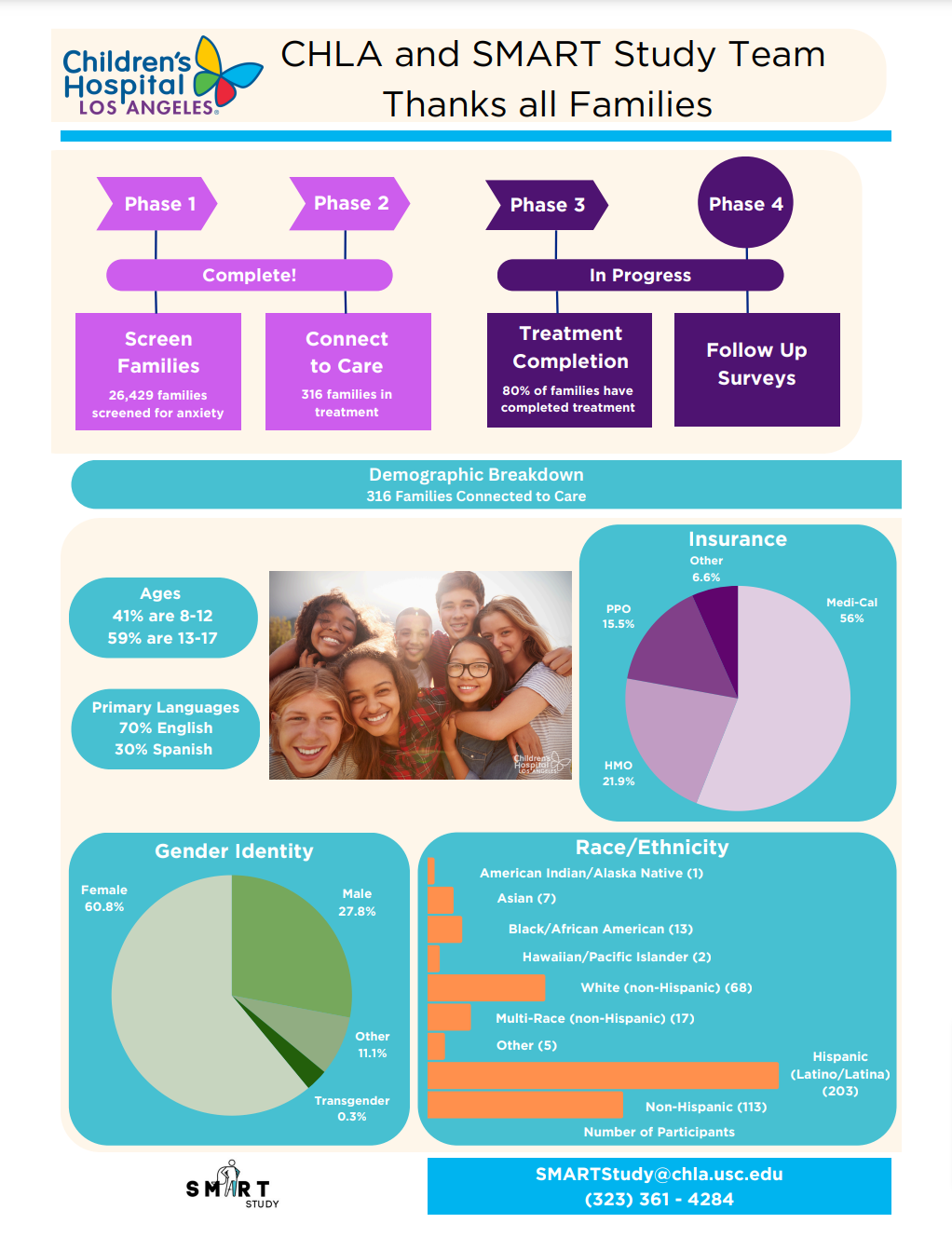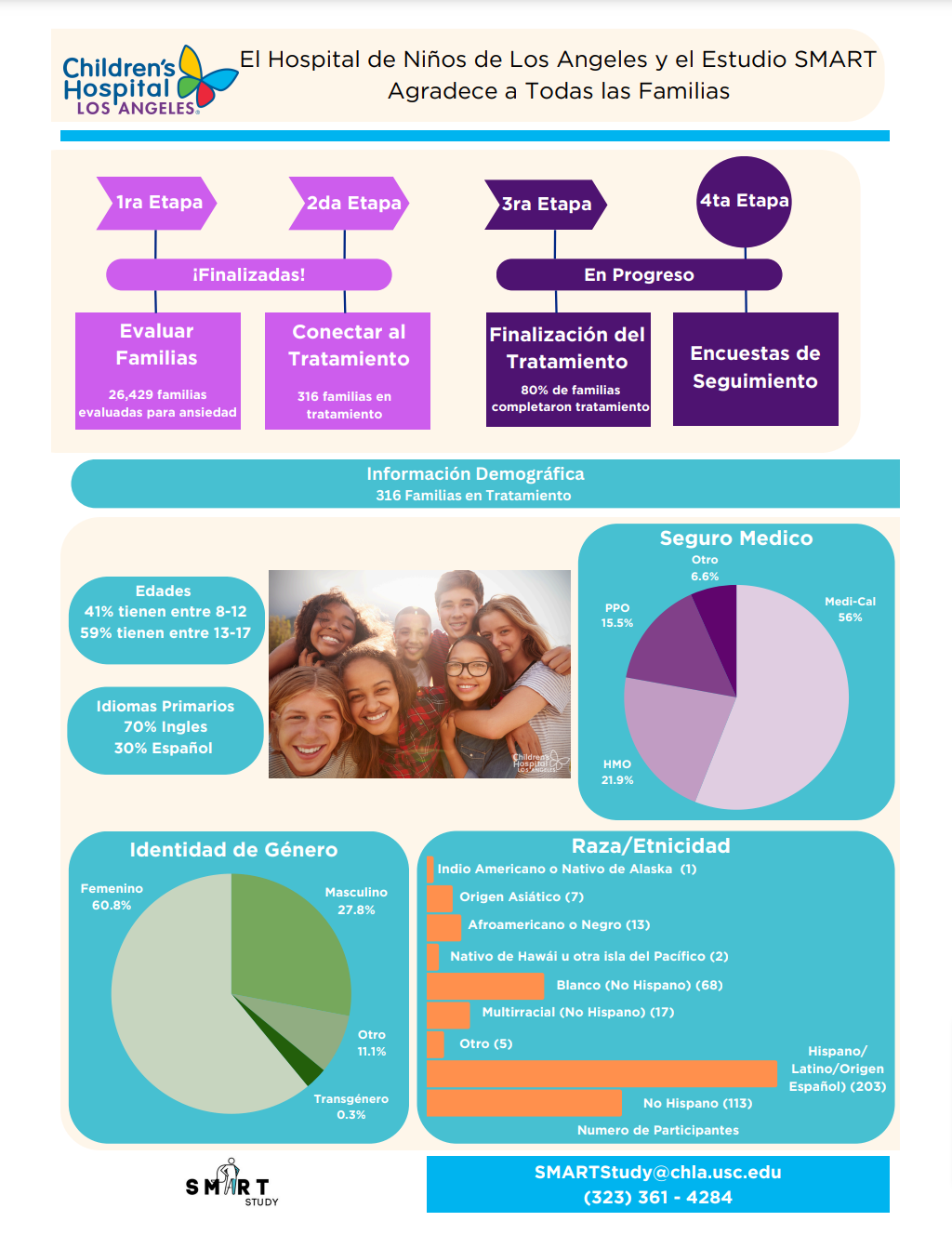Anxiety disorders are common in children and adolescents and cause many difficulties at school, with friends and in families. Children with anxiety disorders are usually treated with cognitive behavioral therapy or medication. This study will compare the success rate of the two treatments.
Funding
Patient-Centered Outcomes Research Institute (PCORI)
SMART Study for Pediatric Anxiety
Anxiety disorders affect one in five young people. Generally, a child is treated with either medication (for instance, fluoxetine) or cognitive behavioral therapy (CBT)—a form of talk therapy.
Despite anxiety being so prevalent in youth, there is no study-based evidence to compare the effectiveness of medication versus CBT therapy. Some success has been demonstrated with each type of treatment, but not everyone responds to a given therapy the same way.
This study aims to answer the following questions:
- Which treatment is more effective—medication or cognitive behavioral therapy?
- If a child’s condition does not improve, is it better to continue with an intensified version of the current treatment or to switch to the other treatment?
About the Study
This multi-center study is recruiting about 400 youth from the greater Los Angeles area. In the first stage of the study, participants will be randomized to either receive CBT or medication. Participants will be assessed at 12 weeks and those who do not improve will either receive an increased level of treatment or be switched to the other treatment for another 12 weeks.
The study results will provide behavioral health professionals and families with evidence-based guidance on how to treat anxiety in youth.


